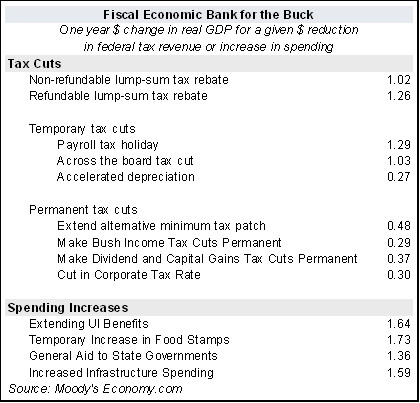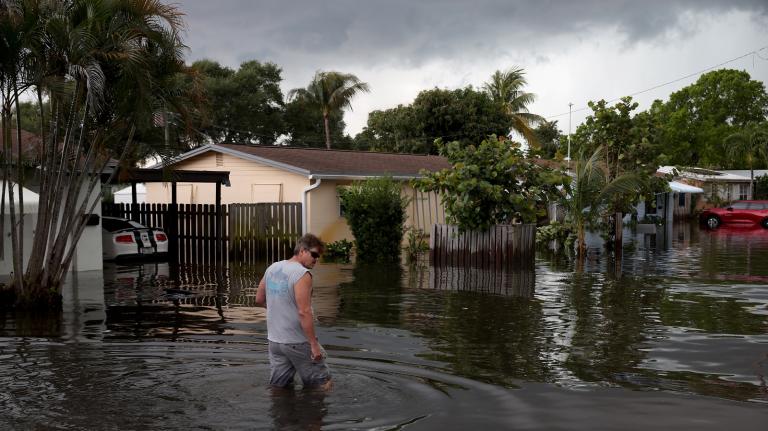I’m no expert in macroeconomics. You probably aren’t either. But there’s a battle over macroeconomics shaping up, and everyone keen on shifting the U.S. toward sustainability has a vested interest in how it turns out. (Which is why I keep writing about it.)
The question is how to react to the financial crisis and what increasingly looks like the global recession to follow.
On one side, Republican lawmakers, laissez-faire economists, and the Very Serious keepers of Beltway conventional wisdom agree: time to tighten the belt. Trim spending. Avoid inflation. It’s oh-so-regrettable, of course, but Serious People realize that now is the time for fiscal conservatism. The establishment’s éminence grise, Washington Post columnist Dean Broder, sounded the cry — or rather, the concern-trollish tut-tutting — on Sunday. He followed in the footsteps of Jim Lehrer and Tom Brokaw, moderators of the first two presidential debates, both of whom solemnly inquired what priorities the candidates intended to jettison.
On the other side, congressional Democrats and economists who have read Keynes — James K. Galbraith, Nouriel Roubini, Dean Baker, Larry Summers, Barry Eichengreen, George Soros, Robert Reich, and probably others — say that deficit spending is exactly what’s needed in an economic downturn. In fact, according to some of them (e.g., Roubini), a massive government spending program (Roubini says $300 billion) may be the only thing between us and the collapse of the global financial system.
Every progressive and green who wants to see substantial climate and energy legislation passed by the next president better add their voices to the latter chorus.
Okay, so assume we need deficit spending. What kind? What offers the best returns, in terms of short-term stimulus, employment benefits, and long-term value creation?
I’m sure you can guess where I’m going with this.
In terms of short-term stimulative effect, check out this chart from Moody’s (via Matt):

As you can see, spending wins over tax cuts hands down. In particular, note that infrastructure spending and aid to states ranks high (this is exactly what Dems propose).
How about jobs? Recall the Center for American Progress "Green Recovery" report, which showed that $100 billion over two years would create 2 million jobs. Or the U.S. Conference of Mayors report, which predicted 4.2 million new jobs in renewables and efficiency by 2038. Or the many, many other reports and studies that conclude that green jobs are a huge growth area.
And long-term benefits? Start with the fact that everyone agrees we need to use less oil and more renewable energy while cutting GHG emissions. One of the best ways to enable quick growth in renewables is to systematically improve the U.S. electrical grid. And one of the best ways to reduce oil consumption over time is to boost public transit. So there’s your infrastructure spending right there: the grid and public transit.
Before conventional wisdom hardens in the other direction, greens need to get out and start arguing that the current financial mess is not a reason to trim back our green ambitions, but to accelerate them with liberal spending on a smart grid, public transit, and other job-creating, emission-reducing, capital-intensive projects. Save the economy, save the planet.
The whole reason I wrote this post is to make a point about current climate politics, but it’s too long already, so I’ll go there in a subsequent post.


